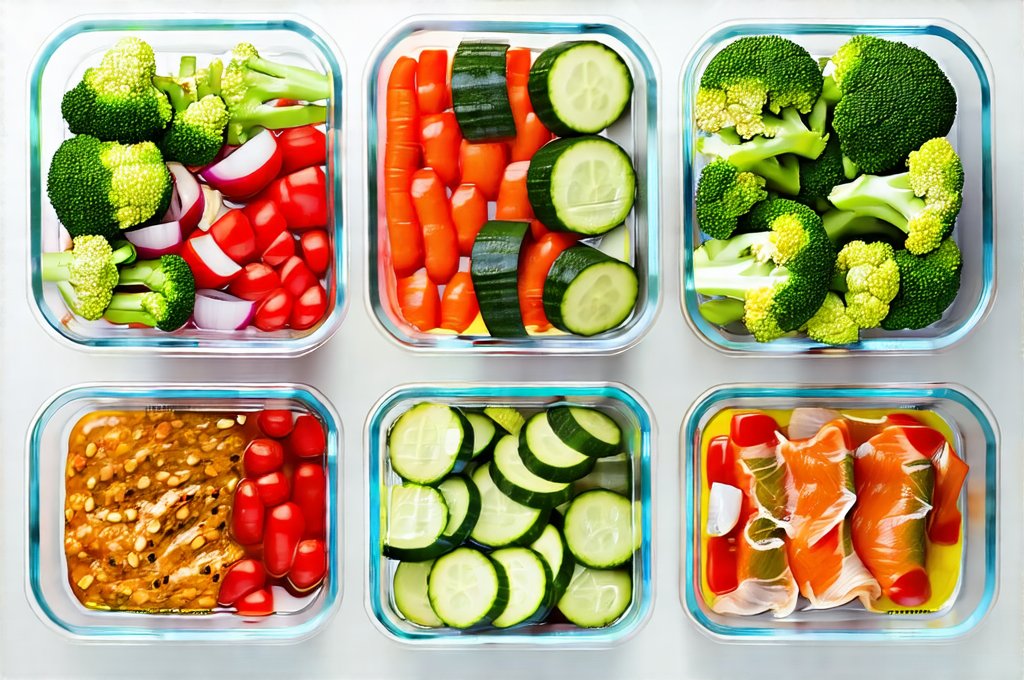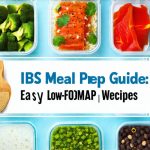Many people approach meal prepping with goals centered around convenience – saving time during busy weeks, reducing food waste, or sticking to a budget. While these are excellent reasons, often overlooked is the profound impact thoughtfully prepped meals can have on digestive health. A system that prioritizes digestion isn’t just about what you eat; it’s about how you prepare it, combine ingredients, and plan for optimal gut function. It recognizes that efficient digestion is foundational to overall wellbeing, influencing everything from energy levels and mood to immune function and nutrient absorption.
The standard meal prep approach – large batches of similar foods – can sometimes inadvertently create digestive distress for some individuals. This isn’t because the food itself is inherently bad; it’s often due to a lack of consideration for how different foods interact within the digestive system, or a failure to incorporate sufficient fiber and supportive elements. A truly effective meal prepping system acknowledges individual sensitivities and proactively supports healthy digestion through strategic planning and preparation methods. It moves beyond simply having meals ready-to-go, and instead focuses on nourishing the gut as part of a holistic approach to nutrition.
The Foundations of Digestion-Friendly Meal Prepping
The cornerstone of any digestive-focused meal prep system is understanding your own body’s needs. What works wonderfully for one person might cause bloating or discomfort in another. This begins with recognizing potential food intolerances or sensitivities, which can range from mild to severe reactions. Common culprits include gluten, dairy, certain FODMAPs (fermentable oligosaccharides, disaccharides, monosaccharides, and polyols), and even seemingly healthy foods like broccoli or avocados in large quantities. Keeping a food journal for a week or two can reveal patterns between what you eat and how you feel.
Beyond sensitivities, consider your baseline digestive health. Do you tend to experience constipation, diarrhea, bloating, or heartburn? These symptoms offer clues about potential areas needing support. For example, someone prone to constipation might prioritize fiber-rich foods and adequate hydration in their meal prep plan. Someone with heartburn may want to explore simple lifestyle shifts that can help manage symptoms. Personalization is key. A generic meal prep plan will rarely address the specific needs of an individual digestive system.
Finally, focus on whole, unprocessed foods as much as possible. These are naturally easier for the body to digest than heavily processed alternatives. Prioritize lean proteins, complex carbohydrates (like sweet potatoes or quinoa), healthy fats, and plenty of vegetables. This isn’t about restriction; it’s about choosing nutrient-dense options that support optimal gut function. The goal is to build a meal prepping system around foods that nourish, rather than stress, your digestive system. If you find yourself struggling with sudden acid spikes, consider best grocery items to keep on hand.
Incorporating Digestive Aids into Your Prep
Meal prepping isn’t just about the main components of your meals; it’s also an opportunity to proactively incorporate elements that aid digestion. This can be as simple as adding herbs and spices known for their digestive benefits. – Ginger is fantastic for reducing nausea and bloating. – Peppermint can soothe intestinal muscles and relieve gas. – Turmeric contains curcumin, which has anti-inflammatory properties that may benefit gut health. – Fennel seeds are traditionally used to alleviate bloating and indigestion.
These aren’t just flavor enhancers; they actively contribute to a more comfortable digestive process. You can add fresh ginger to stir-fries, sprinkle peppermint into your tea or smoothies, use turmeric in curries or roasted vegetables, and chew on fennel seeds after meals. Furthermore, consider incorporating fermented foods into your meal prep rotation. – Kimchi, sauerkraut, yogurt (if tolerated), and kefir are all sources of probiotics, beneficial bacteria that support a healthy gut microbiome. Adding small portions to your meals can contribute to improved digestion over time. It’s helpful to track progress on a gut healing plan when incorporating new elements like probiotics.
Another often-overlooked aspect is mindful cooking methods. Steaming or lightly sautéing vegetables preserves more nutrients and makes them easier to digest than frying or roasting at high temperatures. Similarly, slow cooking protein sources like chicken or fish breaks down the fibers, making them more readily digestible. Gentle preparation techniques minimize digestive strain. It’s about respecting your gut’s capacity and choosing methods that facilitate optimal breakdown of food.
Fiber: The Digestive System’s Best Friend
Fiber is arguably the most important component of a digestion-friendly meal prep plan. However, it’s not just about quantity – it’s about variety and gradual introduction. Different types of fiber offer different benefits. – Soluble fiber (found in oats, beans, apples) absorbs water, forming a gel-like substance that slows digestion and helps regulate blood sugar levels. – Insoluble fiber (found in whole grains, vegetables, bran) adds bulk to stool and promotes regularity. A balanced intake of both is crucial for optimal digestive health.
Sudden increases in fiber can actually lead to bloating and discomfort, so it’s important to increase your intake gradually. Start by adding a small amount of fiber-rich foods to each meal and slowly increase the portion size over time. Also, ensure you’re drinking plenty of water – fiber absorbs water, and inadequate hydration can exacerbate constipation. Meal prepping allows you to strategically incorporate fiber into your diet in a controlled manner. For example, you could prep overnight oats with chia seeds (soluble fiber) for breakfast, include a side of steamed broccoli (insoluble fiber) with dinner, and pack a snack of almonds and berries (both types of fiber) for between meals.
It’s also important to remember that not all fiber is created equal. Some individuals may be sensitive to certain high-FODMAP fibers found in foods like onions or garlic. If you experience bloating after consuming these foods, consider experimenting with low-FODMAP alternatives. Ultimately, finding the right balance of fiber for your individual needs requires experimentation and self-awareness. Finding small wins can make it easier to stick to a new dietary plan.
Hydration & Meal Timing: The Supporting Cast
Even the most perfectly prepped meal won’t be effectively digested without adequate hydration. Water is essential for breaking down food, transporting nutrients, and eliminating waste products. Aim to drink water throughout the day, not just during meals. Consider including hydrating foods in your prep, such as cucumbers, watermelon, or celery. Dehydration significantly hinders digestion.
Meal timing also plays a crucial role. Eating large meals too close to bedtime can disrupt sleep and overwhelm the digestive system. Allow at least 2-3 hours between your last meal and going to bed. Similarly, avoid eating on the go or while stressed – stress impairs digestion. Take time to sit down and savor your meals in a relaxed environment. Meal prepping supports mindful eating by eliminating the rush of having to prepare food when you’re already hungry and stressed. If digestion fails you, remember finding joy is still possible.
Finally, pay attention to how different foods combine within your meal. While there are no hard and fast rules, some combinations can be more easily digested than others. For example, combining protein with carbohydrates is generally well-tolerated. Avoid excessively large amounts of fat combined with complex carbohydrates, as this can slow digestion. By thoughtfully planning your meals and paying attention to these supporting factors – hydration, meal timing, and food combinations – you can create a meal prepping system that truly supports optimal digestive health. When considering dietary changes, it’s important to understand stress impact on the body.


















